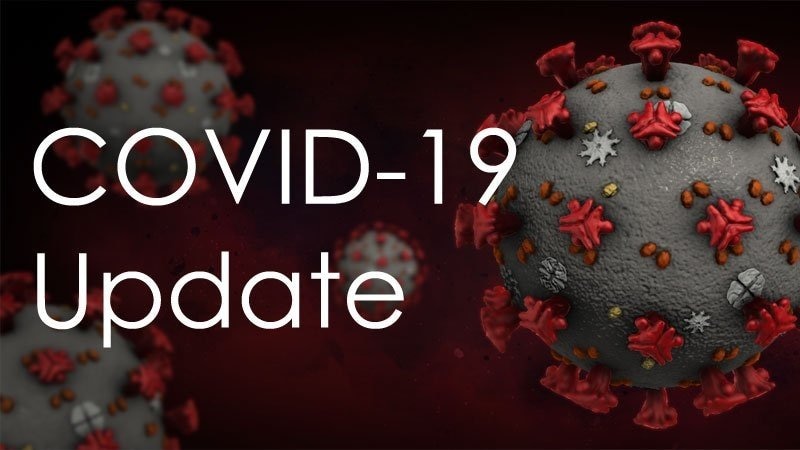
Editor's note: Find the latest COVID-19 news and guidance in Medscape's Coronavirus Resource Center.
Here are the coronavirus stories Medscape's editors around the globe think you need to know about today:
PPIs and COVID-19 Risk: A Closer Look at the Data
An online survey of more than 50,000 Americans has suggested that taking proton pump inhibitors (PPIs) once daily may double the risk for COVID-19, and taking PPIs twice daily may more than triple the risk.
Stomach acid may be protective against the coronavirus, and PPIs potentially could create an environment where the virus can thrive.
Darrell M. Gray II, MD, MPH, gastroenterologist and associate professor at The Ohio State University Wexner Medical Center in Columbus, Ohio, discusses the study, criticisms of it, and the biologic plausibility.
Arguments Against Aerosol Transmission Don't Hold Water
Health organizations that advised that SARS-CoV-2 does not transmit through the aerosol route may lack researchers with expertise in aerobiology, aerosols, and building science, which can lead to incorrect conclusions, according to an aerosol scientist.
Jose-Luis Jimenez, PhD, from the Cooperative Institute for Research in the Environmental Sciences at the University of Colorado, Boulder, breaks down why we know enough to strongly suspect that aerosol transmission plays a substantial role in the spread of SARS-CoV-2.
Which HCPs Are Most Willing to Get First Vaccine?
Physicians were the most likely healthcare professionals (HCPs) to say they would get a COVID-19 vaccine when one is available, according to a new Medscape poll.
As large, phase 3 trials begin for some vaccine candidates, research begins to focus more intently on potential acceptance rates if and when an effective vaccine is ready. More than 7000 clinicians, administrators, and medical students globally answered questions about how they feel about a potential vaccine personally and, for clinicians, what advice they will give to others.
Physicians outside the United States who responded were as likely as US physicians to say they would get a vaccine when one is ready. Nurses and advanced practice registered nurses were much less likely than physicians overall to say yes.
Role of Schools and Kids in Disease Spread
New data suggest that children could be drivers in the spread of COVID-19, which may change the equation as experts weigh the risks and benefits of school reopening.
When officials closed US schools in March to limit the spread of COVID-19, they may have prevented more than 1 million cases over a 26-day period, a new estimate published online this week in the journal JAMA suggests.
But school closure also left blind spots in understanding how children and schools affect disease transmission. A separate study published online in JAMA Pediatrics found that children aged younger than 5 years with mild-to-moderate COVID-19 have high amounts of SARS-CoV-2 viral RNA in their nasopharynx compared with older children and adults.
"Thus, young children can potentially be important drivers of SARS-CoV-2 spread in the general population," the authors said.
Remdesivir Therapy Tied to Lower Mortality
Remdesivir treatment is associated with reduced odds of death and improved odds of recovery in patients with severe COVID-19, according to an interim analysis of two ongoing studies.
"This comparative analysis provides valuable additional information regarding the benefit of remdesivir compared with standard of care alone," Richard H. Haubrich, MD, from Gilead Sciences in Foster City, California, told Reuters Health .
A researcher who recently reviewed the evidence for use of remdesivir in COVID-19, however, said the study is "a company-sponsored interim analysis of observational data…when what we need is a proper, large, masked, randomized, controlled trial."
Scientists Try Vaccine on Themselves
About 20 scientists have volunteered to try a do-it-yourself nasal vaccine against the coronavirus, MIT Technology Review reports. They see the experiment as their chance for immunity before a vaccine is formally approved. But given the need for quality control and the potential risks, self-experimentation with vaccines is not a good idea, a bioethicist says.
FDA Approves EUA for At-Home Saliva Test
The US Food and Drug Administration on July 30 provided an emergency use authorization (EUA) for a saliva-based COVID-19 RT-PCR test that can be self-collected at home, the company that markets the test announced.
The company, Clinical Reference Laboratory, is increasing capacity for the test, known as CRL Rapid Response. The test is more sensitive and accurate than the standard anterior nasal swab test, according to the company.
In Memoriam
As frontline healthcare workers care for patients with COVID-19, they commit themselves to difficult, draining work and also put themselves at risk for infection. Thousands throughout the world have died.
Medscape has published a memorial list to commemorate them. We will continue updating this list as, sadly, needed. Please help us ensure this list is complete by submitting names with an age, profession or specialty, and location through this form.
If you would like to share any other experiences, stories, or concerns related to the pandemic, please join the conversation here.
Jake Remaly is a staff journalist at Medscape Medical News and MDedge. He has covered healthcare and medicine for more than 5 years. He can be reached at jremaly@mdedge.com.
Follow Medscape on Facebook, Twitter, Instagram, and YouTube and follow Ellie Kincaid on Twitter. Here's how to send Medscape a story tip.
Business - Latest - Google News
August 01, 2020 at 05:39AM
https://ift.tt/3fk0lIn
COVID-19 Update: PPI Risk, Aerosol Transmission - Medscape
Business - Latest - Google News
https://ift.tt/2Rx7A4Y
Bagikan Berita Ini














0 Response to "COVID-19 Update: PPI Risk, Aerosol Transmission - Medscape"
Post a Comment